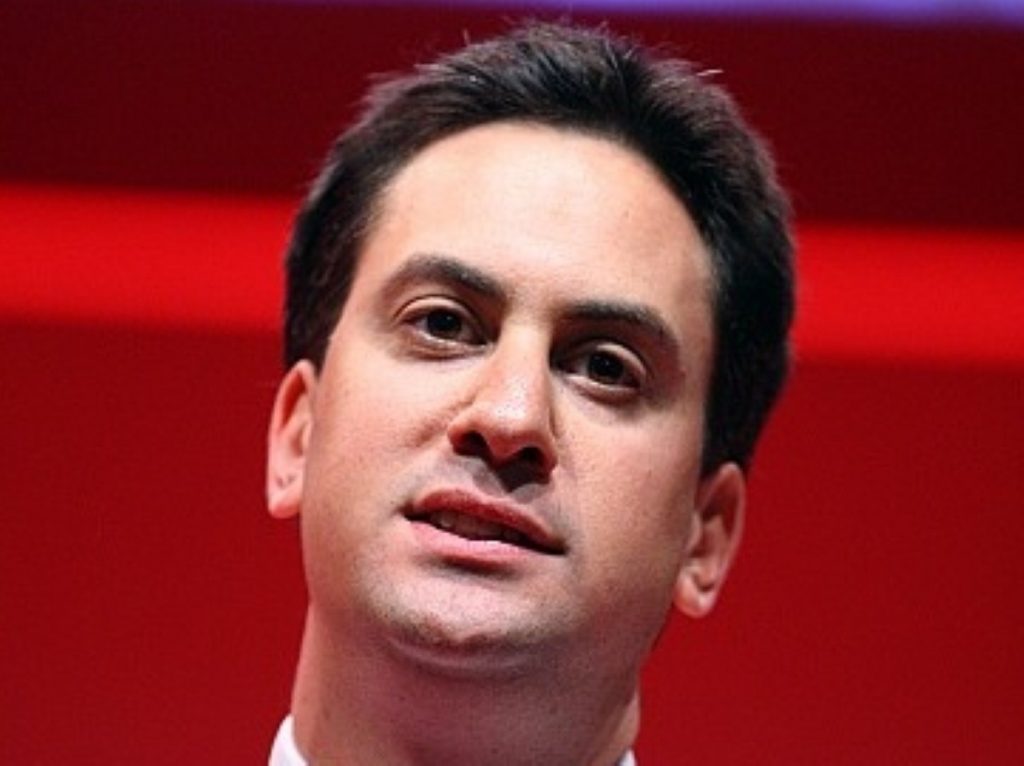New poll low puts Miliband in poor company
Ed Miliband's personal ratings have hit their lowest ever point, virtually matching those of failed Conservative leaders Iain Duncan Smith and William Hague for the first time.
Ipsos Mori's monthly political monitor saw 60% of British adults saying they are dissatisfied with the leader of the opposition, compared to 24% saying they are satisfied.
That gives him a net rating of minus 36%, just one point shy of the minus 37% suffered by Duncan Smith and Hague during their doomed challenges to the New Labour government.
Hague lost the 2001 general election to Tony Blair by a landslide, while Duncan Smith's "quiet man" approach to the job proved so ineffective he became the first party leader in modern times not to fight a general election campaign.


This month's poll rating is yet another setback in a difficult week for Miliband. He was mocked by David Cameron at prime minister's questions this lunchtime for having "bottled it" in his speech to the TUC conference in Bournemouth yesterday.
Miliband's negative poll ratings may have been influenced by a summer of torrid headlines which only ended with Cameron's Commons defeat over Syria, however. Ipsos Mori's survey of 1,000 adults took place between September 7th and September 9th.
Cameron's personal ratings also took a hit, dropping three per cent to minus 20%. But Nick Clegg fared even worse, dropping five points to reach minus 40%.
"David Cameron maintains his lead on key prime ministerial qualities on being capable and good in a crisis – although remains vulnerable on being seen as out of touch," Ipsos Mori's head of political research Gideon Skinner said.
Speculation about the softness of Labour's lead in recent opinion polls appeared to be justified by the latest figures from Ipsos Mori, which put Labour down three points to 37%.
That, combined with a four-point bump for the Conservatives among those certain to vote, means Labour's overall lead is now just three per cent.
The proportion of Labour supporters saying they are certain to vote has fallen dramatically, with just over half planning to back their party in 2015. That compares to two-thirds of Tories and Ukip voters, and to 58% of Liberal Democrats.









